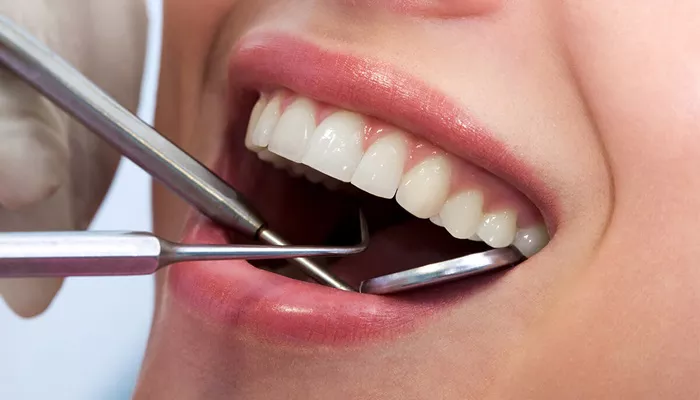Teeth whitening is a popular cosmetic dental procedure that can significantly improve the appearance of your smile.
However, many people are unsure about how frequently they should undergo this treatment. In this article, we will explore the factors that influence the frequency of teeth whitening and provide guidelines to help you maintain a bright, healthy smile.
Understanding Teeth Whitening
Teeth whitening is a process that removes stains and discoloration from the surface of your teeth. It can be done using various methods, such as professional whitening treatments performed by a dentist or over-the-counter whitening products like strips, trays, or toothpaste.
The effectiveness of these treatments depends on the severity of the discoloration and the individual’s response to the whitening agents.
Factors Affecting Whitening Frequency
The frequency of teeth whitening depends on several factors, including:
Lifestyle habits: People who consume staining foods and beverages, such as coffee, tea, red wine, or tobacco products, may need to whiten their teeth more often to maintain the desired level of whiteness.
Genetics: Some individuals are more prone to tooth discoloration due to genetic factors, which may require more frequent whitening treatments.
see also: How Long Do You Keep Teeth Whitening Trays In
Age: As we age, our teeth naturally become more discolored due to factors such as enamel thinning and dentin darkening.
Dental hygiene: Proper oral hygiene, including regular brushing, flossing, and professional cleanings, can help maintain the results of teeth whitening for a longer period.
Type of whitening treatment: Professional whitening treatments performed by a dentist are generally more effective and longer-lasting than over-the-counter products.
Guidelines for Whitening Frequency
Professional whitening treatments: Dentists typically recommend professional whitening treatments every 6 to 12 months to maintain the desired level of whiteness. However, this may vary depending on individual circumstances and the type of whitening system used.
Over-the-counter whitening products: For over-the-counter whitening products, it is generally recommended to follow the manufacturer’s instructions carefully. Most products are designed for short-term use, and frequent or prolonged use may lead to tooth sensitivity or other side effects.
Maintenance whitening: After the initial whitening treatment, it is important to maintain the results by practicing good oral hygiene and using touch-up whitening products as needed. This may involve using whitening toothpaste, strips, or trays on a regular basis or as directed by your dentist.
Combination approach: Some dentists recommend a combination approach, where professional whitening treatments are followed by the use of over-the-counter products for maintenance. This can help prolong the results of the initial whitening treatment while providing a more cost-effective solution for ongoing maintenance.
Considerations And Precautions
While teeth whitening is generally safe and effective, it is important to consider the following precautions:
Tooth sensitivity: Whitening treatments can cause temporary tooth sensitivity, especially to hot or cold foods and beverages. If sensitivity persists or becomes severe, it is important to consult with your dentist.
Gum irritation: Whitening products may cause temporary gum irritation, particularly if they are used incorrectly or for an extended period. It is important to follow the instructions carefully and discontinue use if irritation occurs.
Existing dental work: Whitening treatments may not be effective on existing dental work, such as fillings, crowns, or veneers. In some cases, these restorations may need to be replaced to achieve a uniform whitening result.
Underlying dental issues: Before undergoing any whitening treatment, it is important to address any underlying dental issues, such as tooth decay or gum disease. Whitening treatments may not be effective or may cause further damage if these issues are not addressed first.
Conclusion
The frequency of teeth whitening depends on various factors, including lifestyle habits, genetics, age, dental hygiene, and the type of whitening treatment used. While professional whitening treatments are generally recommended every 6 to 12 months, over-the-counter products should be used as directed by the manufacturer. It is important to consult with your dentist to determine the most appropriate whitening regimen for your individual needs and to address any underlying dental issues before undergoing any whitening treatment.
FAQs
Are There Any Risks of Frequent Teeth Whitening?
While teeth whitening is generally safe, frequent treatments can pose certain risks. The primary concern is tooth sensitivity.
Whitening agents, especially those with high concentrations, can temporarily weaken the enamel, leading to discomfort when consuming hot or cold foods and beverages. This sensitivity can be exacerbated by overuse of whitening products.
Another risk is gum irritation. Whitening products can irritate the gums if not applied correctly or if used too often. This irritation can lead to discomfort and, in some cases, inflammation of the gum tissue.
Additionally, frequent whitening may not only cause sensitivity but can also lead to enamel erosion. The enamel is the protective layer of your teeth, and excessive exposure to whitening agents can compromise its integrity. This erosion can make teeth more susceptible to decay and other dental issues in the long run.
How Does the Frequency of Teeth Whitening Affect Tooth Enamel?
The frequency of teeth whitening directly impacts the health of your tooth enamel. Professional whitening treatments, when performed appropriately, are designed to minimize damage. Dentists usually assess the condition of your teeth before recommending a whitening schedule, ensuring that your enamel can withstand the treatment.
In contrast, at-home whitening products, while generally safer, can still affect enamel if used too frequently. Many over-the-counter products contain lower concentrations of bleaching agents, making them less effective but safer for more regular use. However, using these products daily or too often can still lead to enamel wear and increased
sensitivity.
To protect your enamel, it is crucial to:
Limit the frequency of whitening treatments: Stick to professional whitening every 6 to 12 months and at-home kits every 3 to 6 months.
Maintain good oral hygiene: Regular brushing and flossing help keep your teeth healthy and can prolong the effects of whitening.
Avoid staining foods and drinks: Reducing consumption of coffee, tea, and red wine can help maintain your whitening results and protect enamel.

